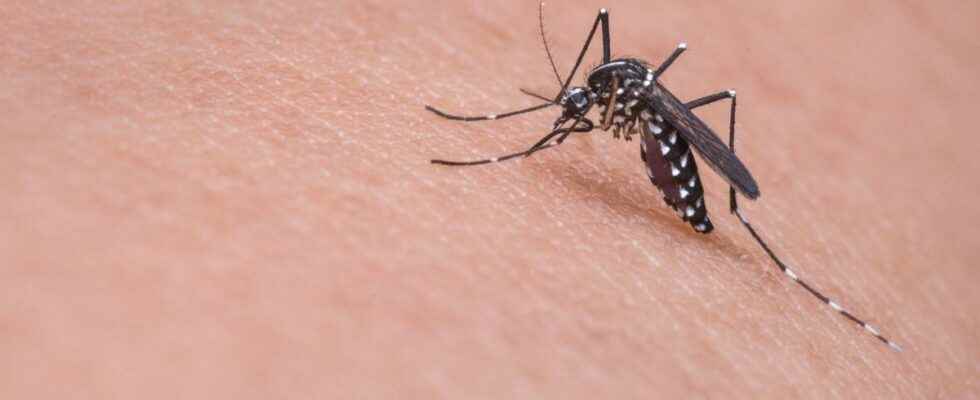Posted ,
Reading 2 mins.
The tiger mosquito is making a comeback. In Occitania, the insect is once again the subject of increased surveillance by the health authorities. More than 5 million inhabitants are affected by this scourge.
The tiger mosquito, a dreaded insect that entered France in 2004, is once again making headlines. Occitania, regularly infested by the insect, enters the enhanced surveillance phase from May 1 until November 30, according to a press release from the ARS published on April 28.
The agency points out that tiger mosquitoes are carriers of many diseases and viruses such as dengue fever, chikungunya or the Zika virus.
Tiger mosquito: the South-East regions are particularly infested
The mosquito is present on almost the entire French territory. But it is in the southern region that he has definitely taken up residence.
The most colonized departments (at least 40%) are Alpes-Maritimes, Var, Bouches-du-Rhône, Gard, Hérault, Lot-et-Garonne, Tarn-et-Garonne, Rhône , the Pyrénées-Orientales and Corsica.
The presence of the tiger mosquito is particularly strong: “In Occitania, 1964 municipalities out of the 4454 municipalities in the region (44%) are colonized, which represents 88% of the regional population, i.e. nearly 5.5 million inhabitants. indicates ARS Occitanie in a press release dated April 28.
The ARS sets up a reinforced surveillance system in Occitania
To limit the spread of the tiger mosquito in Occitania, the ARS plans, from May 1 to November 30, a surveillance system based on three axes:
- Enhanced monitoring of mosquito populations;
- Raising the awareness of people living in areas where these mosquitoes are present and active (stagnant pools of water on a balcony, garden tools, buckets and garbage cans in the rain, etc.);
- Reinforced medical surveillance of people infected with diseases that mosquitoes can carry (chikungunya, dengue fever and zika).
“This monitoring mobilizes health professionals throughout the region to immediately report to the Regional Health Agency any patient showing symptoms of dengue fever, chikungunya or zika. In the event of confirmation of a suspected case, and after an entomological investigation aimed at verifying the presence of tiger mosquitoes, an insecticide treatment is organized in the places where the patient passes.specifies the ARS in the press release.
The agency also recommends that travelers use effective repellents seven days after returning from a stay and ensure that they maintain a “healthy” habitat (including avoiding any source of stagnant water) to ward off tiger mosquitoes.

